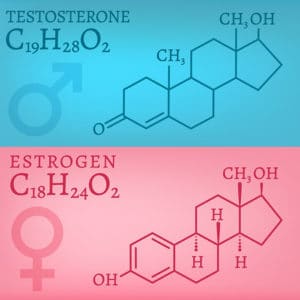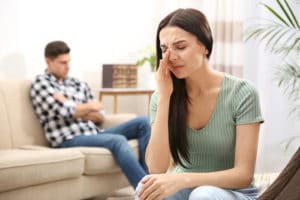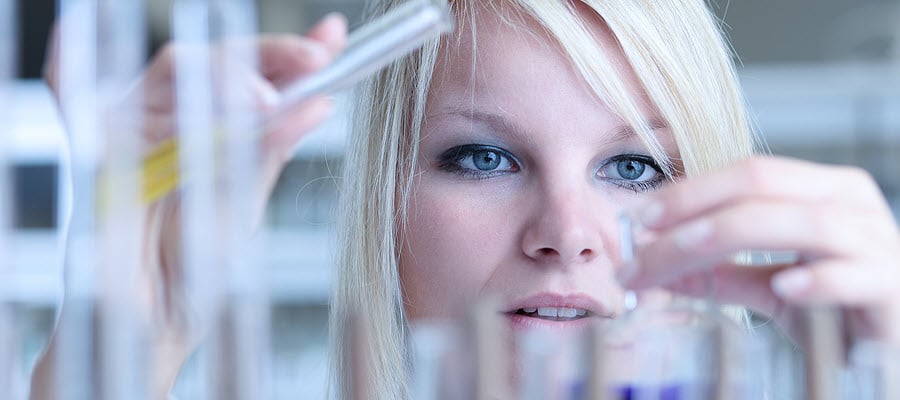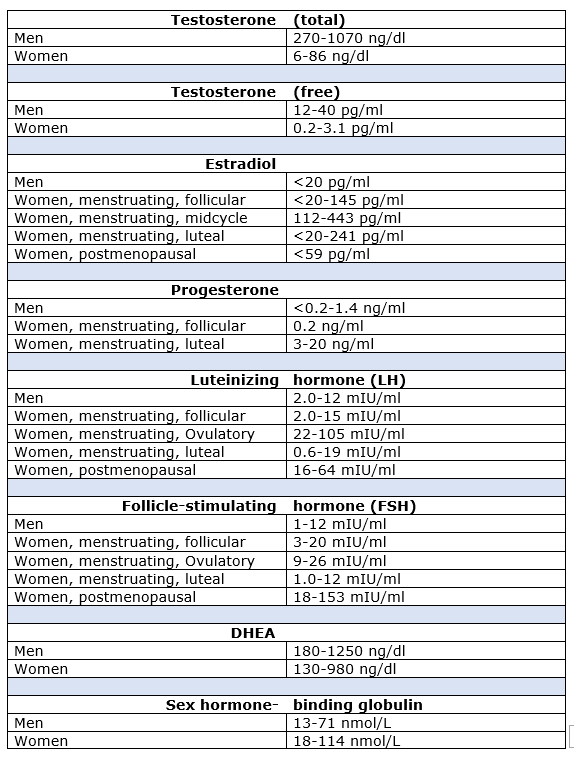Table of Contents
 Estrogen and testosterone play a role in mood, cognitive function, anxiety and stress, pain management, and avoiding dementia, Alzheimer’s, or stroke
Estrogen and testosterone play a role in mood, cognitive function, anxiety and stress, pain management, and avoiding dementia, Alzheimer’s, or strokeMen, do you know your total testosterone and free testosterone levels? Women, do you know your current estrogen and testosterone levels?
When is the last time you asked your doctor to run your sex hormone labs?
If it’s been awhile, I highly recommend Lets Get Checked for sex hormone labs. You order online, they’ll send you a kit with instructions, and once returned to their lab you’ll get your results in 2 – 3 weeks. More about Lets Get Checked later in this article.
I’ve had Personal Consultations with dozens and dozens of men around the world. Some in their late teens and early 20’s.
I’ve also consulted with dozens and dozens of pre- and post-menopausal women around the world.
And many do not understand why others have successfully developed nootropic stacks that worked. But not for them.
For issues including better learning and memory, improved energy levels, ADHD/ADD, OCD, anxiety, social anxiety, depression, and aging.
What you may not realize is you will not enjoy the full benefit of your personal nootropic stack if your testosterone and estrogen levels are not optimal.
Sex hormones are not just for sex
Estrogen affects serotonin, norepinephrine, dopamine, and acetylcholine systems in your brain. All of which play a role in mood, cognitive function, anxiety and stress, pain management, and avoiding dementia, Alzheimer’s, or stroke.[i]
 Estrogen also plays role in brain cell signaling, spinal cord synaptic plasticity and dendrite density. And is involved in the formation of new dendritic spines and excitatory synapses in the hippocampus and cortex for better learning and memory.[ii]
Estrogen also plays role in brain cell signaling, spinal cord synaptic plasticity and dendrite density. And is involved in the formation of new dendritic spines and excitatory synapses in the hippocampus and cortex for better learning and memory.[ii]
A recent randomized controlled trial showed estrogen replacement therapy improved verbal memory and executive control in athletes.[iii]
Testosterone plays a role in brain structure and cognitive function. Testosterone receptors in your hippocampus and prefrontal cortex are involved in higher cognitive function.
One animal study showed that surgical removal of either testicle decreased acetylcholine levels in the hippocampus and anterior cerebral cortex.[iv] And declines in dopamine in the cingulate cortex.[v]
Acetylcholine and dopamine are critical for learning and memory.
Testosterone also modulates serotonin which affects mood.[vi]
You have testosterone and estrogen receptors throughout your brain which respond to steroid hormones synthesized from cholesterol within your brain.[vii]
Sex hormones in men and women
Male Sex Hormones
Testosterone in men
Testosterone is the major male sex hormone. It belongs to a class of male hormones called androgens which are also known as steroids or neurosteroids in the brain.
 Testosterone is produced mainly in Leydig cells in the testes in men and your adrenal glands.[viii] The synthesis of testosterone also occurs in your brain.[ix]
Testosterone is produced mainly in Leydig cells in the testes in men and your adrenal glands.[viii] The synthesis of testosterone also occurs in your brain.[ix]
Testosterone is controlled by gonadotropin-releasing hormone (GnRH), produced by your hypothalamus, which stimulates your pituitary gland to release luteinizing hormone (LH) and follicle stimulating hormone (FSH).[x]
In Leydig cells, LH stimulates the production of pregnenolone. Which is then converted to DHEA.
DHEA rapidly converts to testosterone. Some of which is then converted to dihydrotestosterone (DHT).
Testosterone is also synthesized by various enzymes in neurons and glial cells in your brain.[xi]
Estrogen in men
Certain target tissues including your breasts produce aromatase which synthesizes estradiol from testosterone.
Your brain also produces aromatase which creates estradiol from testosterone. Influencing libido and your desire for sex.
Estradiol is also involved in the regulation of neurogenesis, brain cell signaling, and neuroplasticity. Supporting healthy cognition, mood, and neuroprotection.[xii]
Female Sex Hormones
Testosterone in women
Testosterone is also critical for women’s health and cognition. Testosterone is produced in your ovaries by theca interna cells in response to luteinizing hormone (LH). Testosterone then converts to estrogen.[xiii]
 Even though men produce 7 – 8-times more testosterone, women also require it for healthy menstruation, sexual desire[xiv], red blood cell production, and bone and tissue mass.[xv]
Even though men produce 7 – 8-times more testosterone, women also require it for healthy menstruation, sexual desire[xiv], red blood cell production, and bone and tissue mass.[xv]
Estrogen in women
In women, the production of estrogen starts with the synthesis of pregnenolone from cholesterol in thecal cells in your ovaries.
Pregnenolone is then converted to progesterone. Which is then converted to testosterone and through aromatase produces estradiol.[xvi]
A small amount of estrogen is also released by your adrenal glands and fat cells.
In your brain, estradiol is produced from cholesterol in neurons and astrocytes. And follows a similar pattern to synthesis as in your ovaries.
Symptoms of low sex hormone levels
Testosterone and estrogen levels in men and women decline with age.
Testosterone levels in men decline by 0.4–2% each year. In women, it’s a rapid drop in estrogen during menopause.
Menstruation, pregnancy, and breastfeeding can also result in fluctuations in hormone production.
 An increasing number of young men have been diagnosed with low testosterone levels. Caused by obesity, use of pain medications including ibuprofen and acetaminophen, and exposure to environmental toxins such as herbicides, pesticides, heavy metals, plastic (polychlorinated biphenyls), and COVID-19.[xvii] [xviii]
An increasing number of young men have been diagnosed with low testosterone levels. Caused by obesity, use of pain medications including ibuprofen and acetaminophen, and exposure to environmental toxins such as herbicides, pesticides, heavy metals, plastic (polychlorinated biphenyls), and COVID-19.[xvii] [xviii]
The physical symptoms of low testosterone levels in men include reduced body and facial hair, loss of muscle mass, low libido, impotence, small testicles, reduced sperm count and infertility, hot flashes, irritability, poor concentration, and depression.[xix]
In women, low levels of either estrogen or testosterone results in low libido, less desire for sex, reduced bone strength, poor concentration, depression, weight gain, and fatigue.[xx]
Cognitive symptoms of low Testosterone
The cognitive symptoms of low testosterone in men and women can include:
- Decreased sense of well-being
- Depressed mood
- Difficulty with concentration and memory
- Fatigue
- Moodiness and irritability
- Sleep problems
Symptoms of low estrogen in women
The cognitive symptoms of low estrogen in women can include:
- Trouble with concentration
- Moodiness and irritability
- Headaches before or during your period
- Fatigue
 Sex hormone treatment clinical research
Sex hormone treatment clinical research
The following are several clinical studies showing how neurosteroids (sex hormones in your brain) can benefit brain function, cognition, and mood.
Estrogen for schizophrenia
Research shows schizophrenia appears to be caused by a change or imbalance in levels of dopamine and serotonin in the brain.[xxi]
A randomized double-blind study conducted at the School of Psychology and Psychiatry in Melbourne, Australia recruited 102 women with schizophrenia.
Half of the patients received a 100 μg transdermal estradiol patch or transdermal placebo daily for 28 days.
Symptoms were assessed weekly with the Positive and Negative Syndrome Scale.
The study showed that the addition of 100 μg transdermal estradiol significantly reduced the symptoms of schizophrenia during the 28-day trial compared with the women receiving antipsychotic medication alone.
The study authors concluded that “estradiol appears to be a useful treatment for women with schizophrenia and may provide a new adjunctive therapeutic option for severe mental illness”.
Progesterone for brain repair
Several studies have shown that progesterone, estrogens, and testosterone provide protection against various brain injuries.[xxii]
Studies around the world suggest that progesterone, if given soon after injury, can limit tissue damage and improve brain function after traumatic brain injury (TBI), spinal cord injury, stroke, diabetic neuropathies, and other types of acute neural injury.
Progesterone plays a role in neurogenesis, myelination, TBI, cognition, mood, inflammation, and mitochondrial function. And boosts the release of brain-derived neurotrophic factor (BDNF).
After brain trauma, progesterone reduces brain swelling and inflammatory cytokines, prevents neuron loss and mitochondrial dysfunction, and improves healing.[xxiii]
Estrogen for multiple sclerosis
Researchers noticed that multiple sclerosis patients who became pregnant experienced a significant decrease in relapses that may have been caused by a shift in immune response.
Animal studies of MS have shown that estradiol can decrease disease symptoms. And when treatment stopped symptoms went back to pre-treatment levels.[xxiv]
A randomized, double-blind study was conducted in cooperation with 16 medical centers across Canada and the USA between 2007 and 2014.
164 women aged 18 – 50 years with multiple sclerosis were randomly assigned 8 mg of oral estradiol with glatiramer acetate (20 mg) daily or a placebo.
The study concluded that estradiol plus glatiramer acetate reduced MS relapse rates and were well tolerated.[xxv]
Progesterone reduces effectiveness of ADHD meds
Women with ADHD often find ADHD stimulant meds are not as effectiveness during the last two weeks of their menstrual cycle.
In the first 2 weeks of your cycle estrogen levels increase. And you find your ADHD meds are effective.
But during the last 2 weeks your cycle, estrogen levels drop and progesterone levels increase. And your meds don’t work as well.
The effectiveness of your ADHD meds vary because estrogen plays a role in the creation and plasticity of midbrain neurons. The areas of your brain used for decision-making and emotional and social behavior.
Demonstrated during a trial with healthy young women aged 25-26 years. The researchers wanted to know what Adderall feels like when estrogen is increased.
One group of women received estradiol patches with 10 mg Adderall. The other group used Adderall only. The study participants were in the 1st two weeks of their menstrual cycle.
The team found the combo of an increase in estrogen along with stimulant use increased the effects of the stimulant. [xxvi]
Higher levels of estrogen and lower levels of progesterone are associated with increased effectiveness of stimulant meds in both men and women.[xxvii]
Another study suggested ADHD meds may need to be used at varying dosages throughout the menstrual cycle for optimal symptom control.[xxviii]
Testosterone and memory
Age-related declines in sex hormones occur in both men and women. And is associated with declines in cognition and memory.
Testosterone supplementation in older men has shown in multiple studies to improve cognition and memory.
A study conducted at the University of Washington recruited 57 healthy older men. The men received weekly injections of 50,100 or 300 mg testosterone enanthate or a placebo for 6 weeks.
Blood samples were taken 48 hours after testosterone injection for each week of the study.
The researchers concluded that moderate increases in testosterone (100 mg) but not low or high (50, and 300 mg) resulted in improved cognition and memory.
Other studies with young men and low testosterone showed supplementation improved reasoning, working-, spatial-, and verbal memory.[xxix]
The results of these studies suggest that optimal levels of sex hormones can support working memory and cognition in men at any age.
Testosterone and depression
A meta-analysis of 469 studies published in 2018 concluded that testosterone replacement therapy was an effective in reducing depression in men.[xxx]
 How to read sex hormone lab tests
How to read sex hormone lab tests
The reference range or normal values in a sex hormone lab test are typical of someone who is not receiving hormone therapy.
But you may not be ‘typical’. You may find that even though your labs are within range, if you are still experiencing symptoms, I encourage you to keep on investigating.
Ask for another set of labs and if they are the same as the first, consider nootropic herbs to optimize your hormone levels until you feel better. Or consider hormone replacement therapy (HRT).
You can order your own labs by using Lets Get Checked for sex hormone labs. You order online, they’ll send you a kit with instructions, and once returned to their lab you’ll get your results in 2 – 3 weeks. See more about how to order your labs online below.
Men and women sex hormone level ranges
 Nootropic supplements to boost testosterone
Nootropic supplements to boost testosterone
Vitamin D3 – 5,000 – 10000 IU per day – studies show a relationship between Vitamin D levels and sperm volume, sperm count and motility.[xxxi]
Vitamin D also seems to be involved in testosterone production. A study with 165 men aged 20-49 years were divided into two groups. Group one received 3,332 IU Vitamin D daily for a year and Group two a placebo.
Total testosterone levels in Group one increased by about 25% after supplementing with Vitamin D. But testosterone levels in the placebo group remain unchanged.[xxxii]
Zinc – 25 – 50 mg – a study with 37 patients diagnosed with infertility for 5 years supplemented with zinc. The researchers found zinc supplementation significantly boosted testosterone and DHT levels.[xxxiii]
Ashwagandha – 250 – 500 mg per day – One study tested the effects of Ashwagandha extract (KSM-66®) 225 mg 3-times per day for 12 weeks with infertile men. The study showed a 17% increase in testosterone levels and a 167% increase in sperm count. [xxxiv]
Black Seed Oil (Nigella Sativa) – 2 grams per day – one study with 55 infertile men aged 18-40 years were divided into two groups. One group supplemented with 2 grams Black Seed Oil per day for 3 months.
The group of men using Black Seed Oil had an 46.83% increased sperm count, motility, and viability. As well as a 47.46% increase in FSH, and a 32.75% increase in LH. And testosterone increased by 29.35%.[xxxv]
Ginger extract – dosage not disclosed – a study with 75 infertile men who supplemented with Ginger extract for 30 weeks resulted in 17.7% increase in testosterone, luteinizing hormone (LH) by 43.2%, and follicle stimulating hormone (FSH) by 17.6%.[xxxvi]
Fenugreek – 500 mg per day – 50 men aged 35-65 years supplemented with 500 mg Fenugreek for 12. The result we a 46% increase in free testosterone in the majority of volunteers including improved mental alertness and mood.[xxxvii]
Mucuna Pruriens (L-DOPA) – a study conducted in India recruited 150 infertile men aged 25-40- years. 75 men supplemented with 5 grams Mucuna Pruriens daily for 3 months. The men showed a 41% improvement in sperm count and motility, and testosterone increased by 27%.[xxxviii]
DHEA – 25 – 50 mg per day – naturally synthesized in testes, adrenal glands, and your brain, DHEA is a precursor to the synthesis of testosterone and DHT and can activate both androgen and estrogen receptors.
A meta-analysis of 42 publications demonstrated that DHEA supplementation significantly increased testosterone level in men and was even more effective in women – dosage of >50 mg per day for 12 weeks was more effective than dosages <50 mg per day.[xxxix]
Nootropic supplements to regulate estrogen
Postmenopausal women with low levels of circulating estrogen can experience brain fog and poor cognition,[xl] obesity, metabolic syndrome, cancer, excessive menstrual cramps, pain during intercourse, abnormal or heavy menstrual flow, or polycystic ovary syndrome (PCOS).
But recent studies have shown supporting your microbiome and help prevent many of these estrogen-modulated diseases.
Your microbiome impacts estrogen levels through secretion of the enzyme β-glucuronidase which deconjugates estrogen. Allowing free estrogen to bind to its receptors and preventing many estrogen-mediated diseases.[xli]
Performance Lab® Prebiotic – 3 grams twice per day – the Inulin and FructoOligoSaccharides (FOS) in this prebiotic is fermented in your gut producing short-chain fatty acids (SCFAs) including acetate, propionate, and butyrate.[xlii]
SCFAs including butyrate produced by this prebiotic supports the integrity of the epithelial barrier in your gut. Supporting microbiome homeostasis, a healthy gut, and estrogen metabolism.
Soy isoflavone phytoestrogens – supplementing with phytoestrogen isoflavones extracted from soybeans modulates estrogen metabolism. And has been shown to reduce tumor cells, induce tumor cell apoptosis, and may reduce the risks of breast cancer, heart disease, osteoporosis, and obesity.[xliii]
Luteolin – 60 mg per day – in men, luteolin helps regulate aromatase and preventing testosterone from converting to estrogen and it’s unwanted side effects including ‘man boobs’ and hair loss.
Sex Hormone Replacement Therapy
You may find that natural nootropic supplements alone cannot raise your testosterone or estrogen to healthy levels. Levels to where you feel good, perform like you want, you’re generally in a good mood and not snapping at everyone, your energy levels support the lifestyle you deserve, and memory is not an issue.
You cannot rely on lab tests alone. If your numbers are within the bell curve of “normal”, and you still feel horrible, it’s up to you to find a medical professional willing to work with you. And get your sex hormone levels optimal.
Hormone replacement therapy may be your best option. And it’s not just for men. As a woman, you deserve to feel great too.
Do a search for “hormone replacement near me” and see who turns up. Then read the user reviews before you make a call.
But if you can not find anyone locally to work with I highly recommend a consultation with Blokes.co for men and Joi.co for women. You’ll do an online consultation, they’ll order labs for you, and then write you a script for the hormones you need help with.
An alternative if all you want is to know your levels, I highly recommend Lets Get Checked for sex hormone labs. You order online, they’ll send you a kit with instructions, and once returned to their lab you’ll get your results in 2 – 3 weeks. Try: Lets Get Checked and use coupon code: nootropics20 for 20% off.
Nootropics Expert® Recommendation
 Your hormones including testosterone, estrogen, and progesterone play a critical role in not only physical performance, but in optimal brain health and cognition as well.
Your hormones including testosterone, estrogen, and progesterone play a critical role in not only physical performance, but in optimal brain health and cognition as well.
You can put together the best nootropic stack on the planet tailored for your specific issues. But you will NOT get its full benefit if your hormones are not optimized.
Supporting healthy sex hormone levels that are optimized for you, can make the difference between living the life you dream of, or continuing to struggle.
Your age should not determine how you want to feel and perform. This goes for you too if you’re in your 20’s or 30’s. Depleted sex hormones can happen at any age.
But if that’s not enough, consider hormone replacement therapy. And start living life on your terms. You deserve to feel great! Every single day.
For HRT, I highly recommend a consultation with Blokes.co for men and Joi.co for women. You’ll do an online consultation, they’ll order labs for you, and then write you a script for the hormones you need help with.
An alternative if all you want is to know your levels, I highly recommend Lets Get Checked for sex hormone labs. You order online, they’ll send you a kit with instructions, and once returned to their lab you’ll get your results in 2 – 3 weeks. Try: Lets Get Checked and use coupon code: nootropics20 for 20% off.






Join The Discussion - 37 comments
Robert
March 30, 2023
Hello Mr Tomen. I recently used your link for Blokes. I have my labs due for tomorrow. But Im concerned now that the D-E-A is making difficult to have TRT throughout telemedicine. What do you think about this or expect ?
David Tomen
March 31, 2023
Robert, I do not clearly understand your question. IF what you mean is will DHEA levels mess with lab results that answer is “maybe”. Because DHEA should help increase testosterone.
But every full testosterone panel I’ve come across includes levels for DHEA, total testosterone, and free testosterone. You can be high in DHEA but not testosterone because your body is having difficulty converting it for any number of reasons.
If this does show up as a problem then ask to speak with another doctor. I went through several doctors before I finally found someone willing to work with me. Hopefully, you do not encounter this problem. But if you do then do NOT give up. Your life depends on it.
Roberto
April 4, 2023
Im so sorry for the mis understanding, the info was awesome though. I was asking about the new law about to be effective from the drug enforcement about telemedicine and hormone replacement therapy.
David Tomen
April 9, 2023
Ahh. I was not aware that the politicians wanted to change that. I see a urologist who takes care of this for me so I haven’t been paying any attention. Sounds like we need to vote in people willing to work with us and what we as citizens want.
Alex
February 21, 2023
Hi David! I’m 22 and lost 100% of my libido, my free T and Estradiol went perfectly fine.
Should I do more hormone lab work? DHT etc?
It’s frustrating last year I was addicted to porn, this year I feel nothing when I see girls. I didn’t touch any sort of antidepresants!
David Tomen
February 21, 2023
Alex, first try increasing dopamine by using 500 mg L-Tyrosine 2 – 3-times per day. And see if that helps. It may take a week or more to feel the full benefit. And if you think some dopamine receptors are dysfunctional then 500 mg NAC 3-times per day should fix that.
If none of that works then get a full testosterone panel done including DHEA, LH, SHBG, Vitamin D, Total T, etc.
Alex
February 22, 2023
Thank you David!!!!!! :))))
David Clark
December 13, 2022
Question: I understand that luteolin increases T and reduces E, but I have also read that it may reduce progesterone. I am a male in my 60s, so I like the idea of increasing T and reducing E, but I know that progesterone is necessary as well. Do you know if it is true that progesterone would be reduced by luteolin? I am on the fence about using it. It sounds like a good supplement, and I see even Life Extension uses it in a T formula, but I am concerned about the progesterone.
Thanks in advance for your reply.
David Tomen
December 16, 2022
David, luteolin increases progesterone and testosterone syntheses in Leydig cells (https://pubmed.ncbi.nlm.nih.gov/31201582/).
Robert
September 11, 2022
Hello Mr Tomen, TY for everything you’ve done. My question is, does Pinepollen fall in this list ?
David Tomen
September 13, 2022
Robert, Pine pollen is a natural source of plant-based testosterone.
Joan
August 3, 2022
Hi David, I want to get some Total Testosterone and Testosterone Free tests done, but I have been using Tongkat Ali. How long should I stop using it so that it does not affect the results of my testosterone tests?
– and could I use “shilajit” or could it also affect the test?
– Lastly, I would like to know, do you recommend the use of “Celastrus paniculatus” as a nootropic or is it not as effective according to your experience?
David Tomen
August 4, 2022
Joan, Tongkat Ali has a half life of around 9 hours according to animal studies: https://pubmed.ncbi.nlm.nih.gov/16206032/. So it should be gone from your system in about a day. But you’ll also notice that has very poor bioavailability (i.e. approx. 10%) so you really should have nothing to worry about in a day of not using it.
I cannot find the half life of Shilajit but it definitely increases total testosterone, free testosterone and DHEA-S (https://www.ncbi.nlm.nih.gov/pmc/articles/PMC3609271/). I would quit it a few days before getting your labs done just to be sure you are getting an accurate reading.
As for Celastrus paniculatus, I haven’t done the research and it is unlikely that I will. It is an ancient Ayurvedic medicine and was used in Traditional Chinese Medicine as well. But any study done in English was done on rats, mice or in a petri dish. So I would not be able to honestly recommend it because there is no way to prove that it helps the human brain. It may but I can’t prove it.
Cristina
May 25, 2022
David thank you for your generosity in helping thousands of people daily, including me, god bless you, I have some questions for you, if you could help me
– Do you use Theacrine daily? And If not, when do you do it?
– Can you mix DHEA and Tongkat Ali?
Because both are involved in the production of testosterone…
– and finally do you think this brand of DHEA is good enough:
KAL DHEA 10 mg
David Tomen
May 25, 2022
Cristina, I have not found a need to use Theacrine. I use caffeine (coffee) in the morning. And L-Theanine during the day and before bed.
DHEA directly increases testosterone because it is a natural hormone. Scientists “think” that Tongkat Ali increases the release of Free testosterone by promoting the release testosterone from SHGB. So two different mechanisms of action. You can use both if you like. As a woman you need to be careful however because you don’t want to increase testosterone too much. In your body it needs to be in balance with estrogen.
The only reason I do not prefer the KAL supplement is because they add magnesium stearate which is no benefit to you. I prefer this one: https://amzn.to/3MQNkro because it’s pure. But it is 50 mg which may be too high a dose for you. See if you can find a lower dose DHEA that does NOT contain any “other ingredients”.
Aleksander
May 24, 2022
Amazing article David! A m a z i n g!
As a male I would like to increase effectiveness of my ADHD stimulants.
How Can I lower progesterone? Are there any nootropics for that?
David Tomen
May 24, 2022
Excess progesterone can be caused by stress, smoking, too much caffeine, or a genetic disorder called congenital adrenal hyperplasia.
You can reduce it by increasing your intake of Vitamin D3, reducing stress, eating more fiber (https://www.ncbi.nlm.nih.gov/pmc/articles/PMC2744625/), and stop smoking.
M
May 23, 2022
HELLO David! I just start using DHEA cream to increase my testosterone level & sex drive . When I apply cream, my sex drive is high for 1-2 hours , after that it again goes to low sex drive for whole day. I apply two pumps daily 50mg total , should I apply more cream 75-100 mg or I wait for few weeks to see the result . progesterone Is synthesized before DHEA , if I use DHEA cream . Will it increase progesterone also?
David Tomen
May 24, 2022
DHEA will not increase progesterone. It goes on to quickly make testosterone which is then converted into either DHT or estradiol. Depending on how your system works this process can happen faster than it does for others.
You can prevent the conversion to estradiol by using DIM every day and see if that helps extend it.